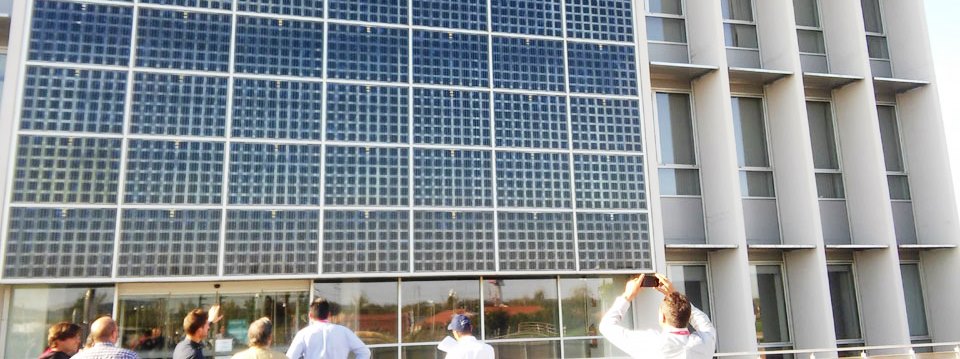The need for a building strategy based on cooperation and the user as the axis of the system, or the need for regulatory and financial support for rehabilitation, are two of the main conclusions of the DEBATE FORAE held at Expobiomasa 2017.
Keys to improve buildings
Pedro Fernandez, general secretary of the National Confederation of Construction, CNC, who indicated that Spain has an obsolete housing and buildings park, which is subject to climatic and regulatory requirements both national and European. "We are committed to sustainable construction from the point of view of natural resources (circular energy) and energy (energy efficiency)," he said.
Javier Diaz, president of AVEBIOM highlighted the fundamental role that biomass can play in reducing CO2 emissions.
Ricardo Fortuoso, president of AEICE, pointed out how climate change is beginning to mark everything, with serious consequences that require measures in the field of building.
José Manuel Jiménez Blázquez, General Director of Quality and Environmental Sustainability in the Junta de Castilla y León, indicated that much remains to be done; although work has been done on the rehabilitation of the boiler rooms and progress is being made in the hot and cold networks. In this sense, he valued the role of biomass, for its advantages and how institutions should support it, especially in a region such as Castilla y León.
Enrique Cobreros, Director of AEICE, explained how the "future strategy of the sector involves the preservation of the environment and the quality of life of citizens through the rehabilitation and almost zero consumption buildings", a regulation that will be mandatory compliance for the public sector as of January 1, 2018; and for everyone, starting in 2020. For AIECE the message has been wrong and now is the time to take people into account, based on collaboration, the SmartCities concept and friendly environments. In this sense, it is important that society begins to demand almost zero energy buildings or how aspects such as the circular economy begin to be a social strategy. He also pointed out that the challenges go through the Lean methodology and Construction 4.0.
Felipe Romero, architect of the Institute of the Construction of Castile and Leon, ICCL, indicated that it is necessary to minimize the impacts, with design strategies marked by guidelines of sustainable use and not only talk about energy.
Raúl Sánchez, technician of the Cartif Foundation contributed that data on the concept NBS (Natured Based Solutions) and in interactivity, as well as in that the social issue is always present, so the technology must be applied to face the climate change through of City Sustainability Plans.
Carlos and Jorge Gómez, of Renovemos Madrid, presented the replica of the urban regeneration of the Madrid neighborhood of Orcasitas, through a "real" integral service, a solution to financing problems, guaranteeing professionalization and representation before Public Administrations
Alejandro mesa, from INTESAN_IBSTT mentioned the opportunities for new technologies in sanitation rehabilitation, which include cleaning with high pressure water, an analysis of anomalies and damages and guarantees in the works.
José Carlos García Pérez, Director of the Environment Service of the City of Valladolid, stressed the need for users to become aware that, for example, changing windows has an immediate return and that it is necessary to control the facilities.
María Luz Garrote Revilla, Head of the Construction Service of the Ministry of Education of the Junta de Castilla y León, said that in its department have included, in any sheet, energy efficiency criteria and is beginning to see how to include energy buildings almost zero.
Angel of Castro Carranza, Head of the Service of Programming of Investments and Equipment of the Ministry of Education of Castilla y León spoke of rehabilitation of the buildings that house schools, which mostly exceed 40 years old. Centralized contracts are made and comprehensive actions are sought.
Alfredo Cadórniga, Head of Area of the Department of Energy Saving and Efficiency of the EREN made incidence in not only acting in the economic part, but also in the comfort. He highlighted the role that Energy Services companies can play.
Jonathan Callejo, responsible for the maintenance of Castilla Termal Hoteles, in reference to energy efficiency and the use of biomass and other renewable energies, spoke that the actions carried out in the Hotel Monasterio de Valbuena have allowed energy savings of up to 35%.
This debate took place at Expobiomasa 2017 organized by the Better Buildings Cluster, the Spanish Association for the Energy Valorization of Biomass, AVEBIOM and the Innovative Construction Efficient Business Group, AEICE. And it served to address the keys to improve the building and that necessarily pass the recovery of the construction sector in Spain, promoting rehabilitation, urban regeneration, quality and energy efficiency. In this scenario, biomass is emerging as an interesting solution.
Source http://mejoresedificios.com/claves-mejorar-los-edificios/
